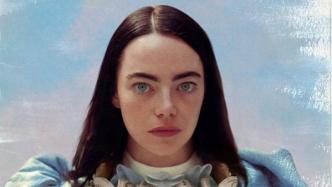
Note: This article contains serious spoilers
When it comes to global movies last year, "Poor Things" is a film that cannot be avoided. This unique and even a bit shocking work won many awards including the Venice Golden Lion Award for Best Picture and the Golden Globe Award for Best Musical/Comedy. Its themes are bizarre and controversial, and will leave a strong impression on viewers whether they admire or loathe the film.
The film is adapted from the 1992 novel written by Scottish writer Alasdair Gray. Although I didn’t have the opportunity to see the original work, the story background of the film roughly took place in the 19th century British Victorian period. It describes a doctor who implanted a baby’s brain into the head of the mother who had just died, and created a body that was no different from that of an adult woman. The "new woman" has a cognitive level but learns as quickly as a child. This novel, obviously inspired by "Frankenstein", is also based on fantasy and uses the setting of "Frankenstein" and human interaction to explore issues such as technological ethics and social culture. It also explores "what makes us human" Such philosophical speculation raises new ideas.
After being adapted into a movie, due to the director's wild visual techniques and the cultural wave of global promotion of women's rights in recent years, the film appears to be more critical and poignant for the audience.
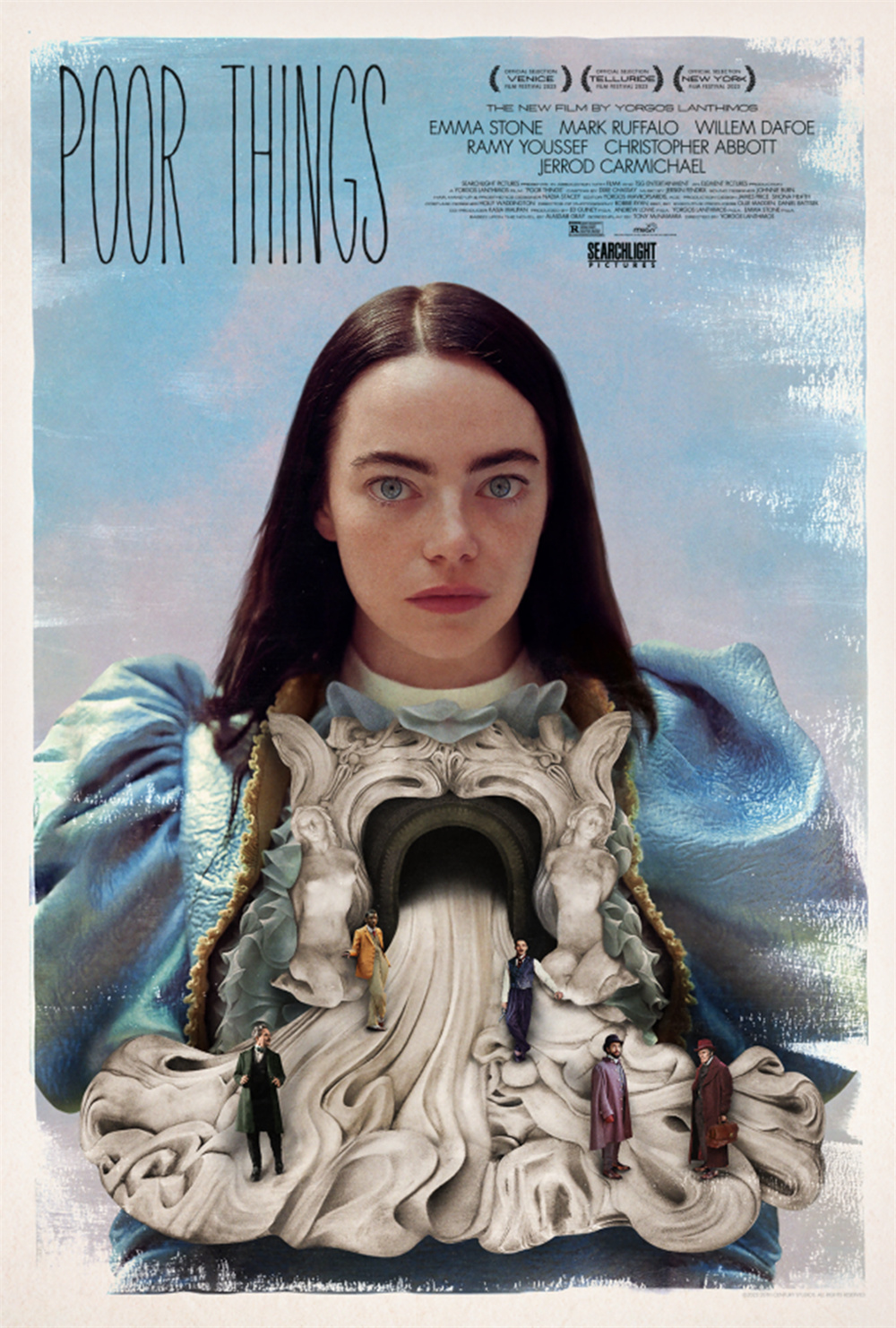
The overall unique and retro art style of the film, just like the poster, will leave a deep impression on people.
The director of this film is Greek Yorgos Lanthimos. He gained the attention of the world film industry with his low-cost "Dogtooth" 15 years ago. Then he hired American star actors to shoot larger-scale films such as "The Lobster", "The Killing of a Sacred Deer" and "The Favorite". His film stories are often highly fantasy-like, such as "The Lobster", which depicts society forcing young men and women to find a partner quickly, otherwise they will be turned into lower animals, such as lobsters. This metaphor of a "single dog" takes the audience to re-examine the current social and cultural situation from a fantasy perspective. The style of the film combines the creation of a realistic atmosphere and a fantasy environment, making it artistically unique.
Although slightly unruly, Lanthimos's directorial style is essentially the same as the history of European cinema. Both use a sharp attitude to criticize common cultural customs for the public and propose personal new ideas. opinion. Similar to another film master Lars von Trier, their films all take pleasure in touching cultural taboos and offending the public, but at the core they all have their own thinking and are by no means sensational performances.
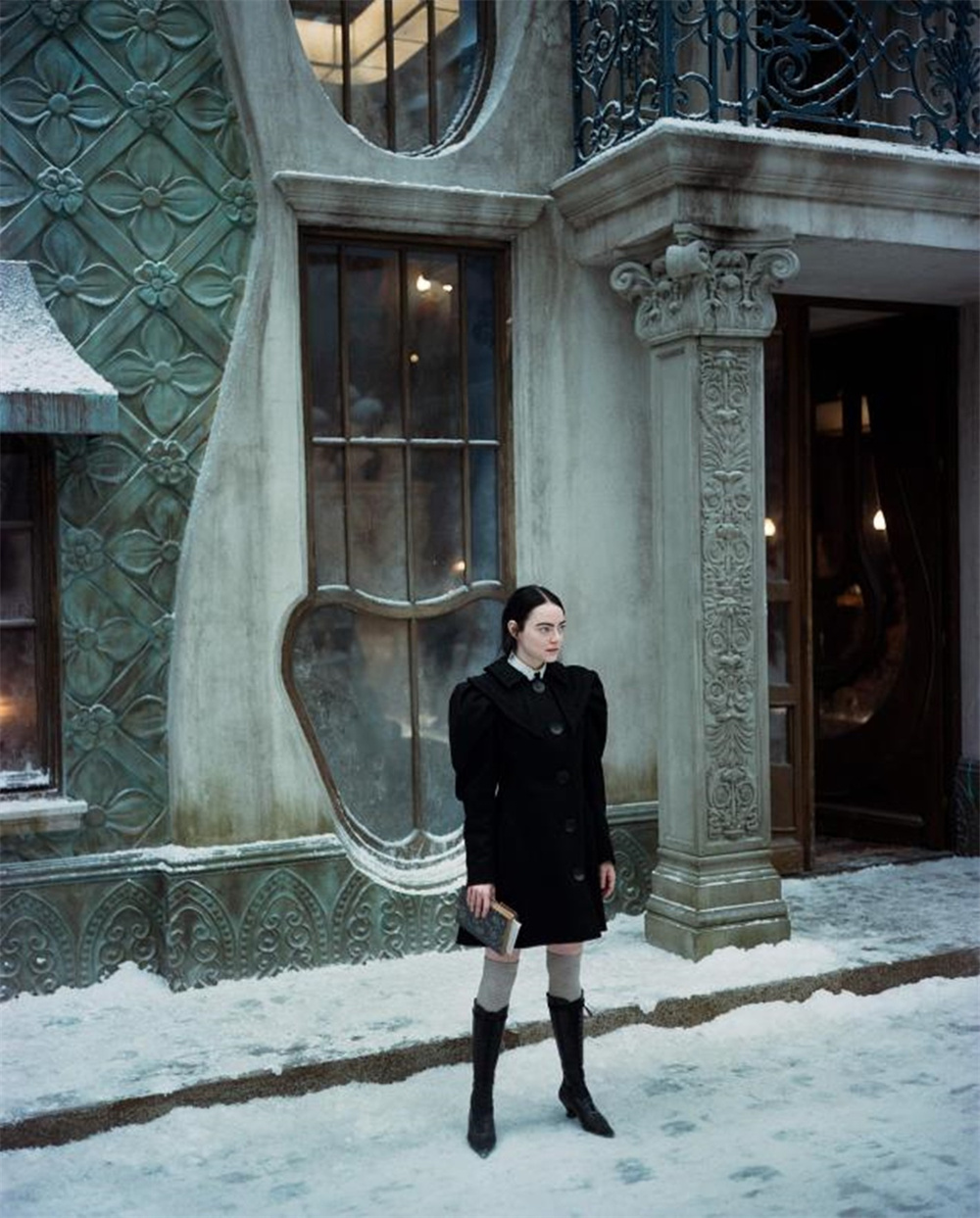
The film's visuals often have some rather gruesome parts. It can be seen as the director's good-natured joke and his frank and unabashed attitude towards "sex symbols". For example, the windows of this building.
The most difficult part of this film for audiences, especially female audiences, is that it describes the process of the protagonist, a "new woman," finding her own value in secular society. Most of the time, she is just a plaything of a romantic lover, or lives in Paris. Making a living in a brothel. The film does not shy away from some scenes of body nudity, which may make male viewers curious and make female viewers feel slightly uncomfortable.
In the culture of the 19th century, the woman who became a wandering oriole was originally a female image that would be sympathized by the public and a bit self-destructive - just like the mother Fantine who died early in "Les Misérables", who was deceived by her lover. Pregnant and fell into a tragic fate - the world's understanding of this is mostly that they should be saved or helped.
However, in "Poor Thing", because the heroine herself does not think that life is miserable, she even gains a lot of happiness from the liberation of her body, and even boldly declares, "I can use my body however I want." The vision re-constructed the fate of women in the late industrial revolution, resulting in a novel perception. Just like the theme described by Lars von Trier in the movie "Breaking the Waves", when a seemingly lustful woman actually has extremely holy thoughts, how should a conservative society evaluate her deviant behavior? We can probably just collectively shut up and let the protagonist do whatever he wants.
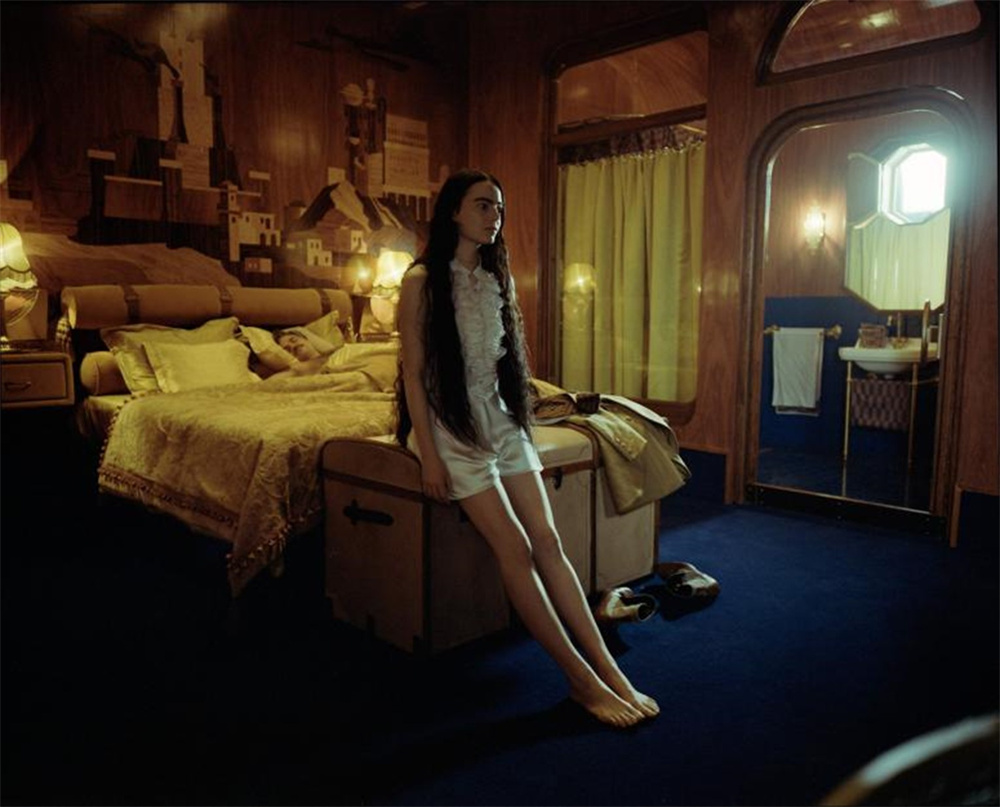
Actress Emma Stone, known as "Sister Stone" by Chinese audiences, leaves a deep impression on people with her physical performance in this film that changes with the different stages of the character. The overall performance design is quite high quality.
This contradiction makes the film's stance seem to be mocking the heroine's innocence and stupidity, while also seeming to be praising her idealism that breaks through the world. But female viewers will obviously feel more ridiculed. For women who currently support the feminist movement, most of what they imagine is that women’s rights to equal pay for equal work will be improved in the future, or that they will have the same or even higher social status as men in other cultural and political aspects, just like in the movie "Barbie" As described. If you ask them to work as prostitutes and tell them that this is a "body liberation movement" and "this is your right to take risks freely", it is obviously a kind of deception and fooling. One can imagine the anger of the female audience.
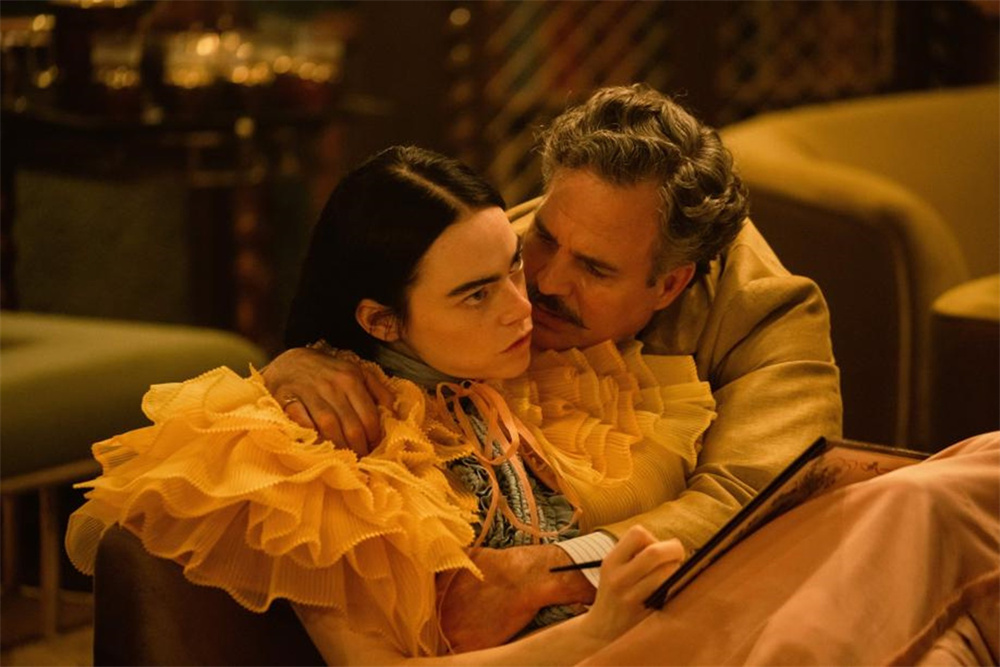
The heroine was deceived by the playboy at first, but in the end she broke the playboy because she went too far. This is quite a funny exaggerated comedy plot.
Of course, even if the heroine has new understandings and gains about her experiences most of the time, the director cannot be persuading all female viewers to become sex workers. In fact, the story of the protagonist of the film was a very typical female tragedy in the 19th century - she was deceived by her lover and lost her virginity, her reputation and social status plummeted, she lost the support and financial resources of her family's parents, and had to live in the streets and alleys to make a living. Tragically losing young lives to various epidemic diseases.
200 years ago, although the industrial revolution created the myth of "freedom and equality for all", if a woman did not rely on men in society and did not give birth to children to make a living as a housewife, then the jobs she could find in social reality would probably be That is to make money by selling your body. Except for a very small number of women with family cultural background who are lucky enough to engage in creative work such as art, most women lag behind men in physical work. And a large number of male workers are overloaded and work hard every day and still don't have enough to eat, while female workers can only barely survive on the food and clothing line.
The experiences of the heroine in the film are not created, but based on the reality of the 19th century. No matter how advanced her ideas were, even if the American strong woman Hillary was thrown into the social environment at that time, what she could do would probably be quite limited. She could only unite women through a few institutions such as church hospitals to improve their living conditions. Become a weak pioneer in social movements. Just like the heroine of this film, although she is trapped in a brothel, she is working hard to improve the relationship between prostitutes and their clients and create a new harmonious relationship between the sexes. Although this plot is exaggerated, it can't help but make people smile. Under the best circumstances, it turns out that idealism can still improve people's situation to some extent, even if it has been reduced to dust.
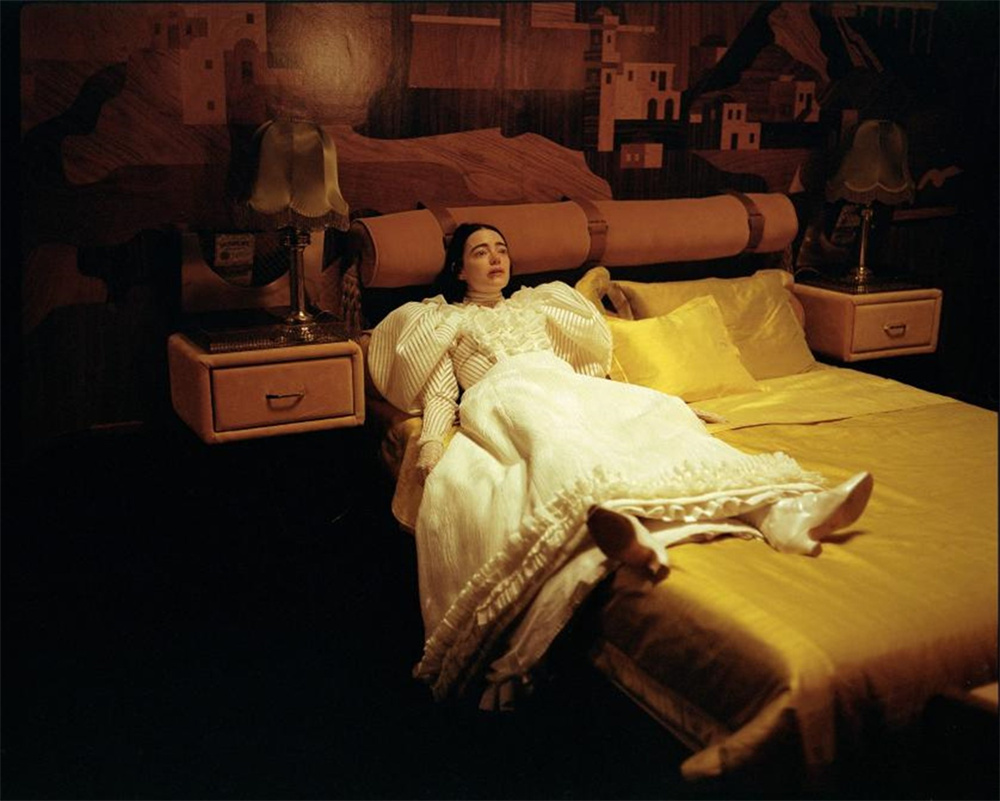
The heroine is like a delicate doll. Although she has a strong self-assertion, upon closer inspection, most of the time she is just trapped in social reality and cannot help herself, just like most people who cannot control their own destiny. She actually didn't change much about her surroundings.
In the highly harsh reality, all the heroines' early freedom and adventure are supported by a large amount of money from their families and lovers. And once she loses her money - in the film she somewhat absurdly distributes all the money to the poor, but in fact it all falls into the hands of scammers - she has no choice but to do what she can do.
In the end, the heroine escaped from the fire pit and returned home to inherit her father's superb medical skills and family business. Although she won the battle on her own against her evil ex-husband, it is clear that in the context of the fantasy story, she was able to escape the prison of an unequal marriage without the trouble of the police and her ex-husband's family. It was the reason that forced her to commit suicide by jumping into a river in her previous life.
The film's description of the plight of women is quite profound. Although it seems to be a joke, it has some basis in reality. No matter how ahead of the times the heroine's ideas are and how strong her desire for freedom is, she only has a little control over her own destiny. Most of the time, she has to turn on the protagonist's halo.
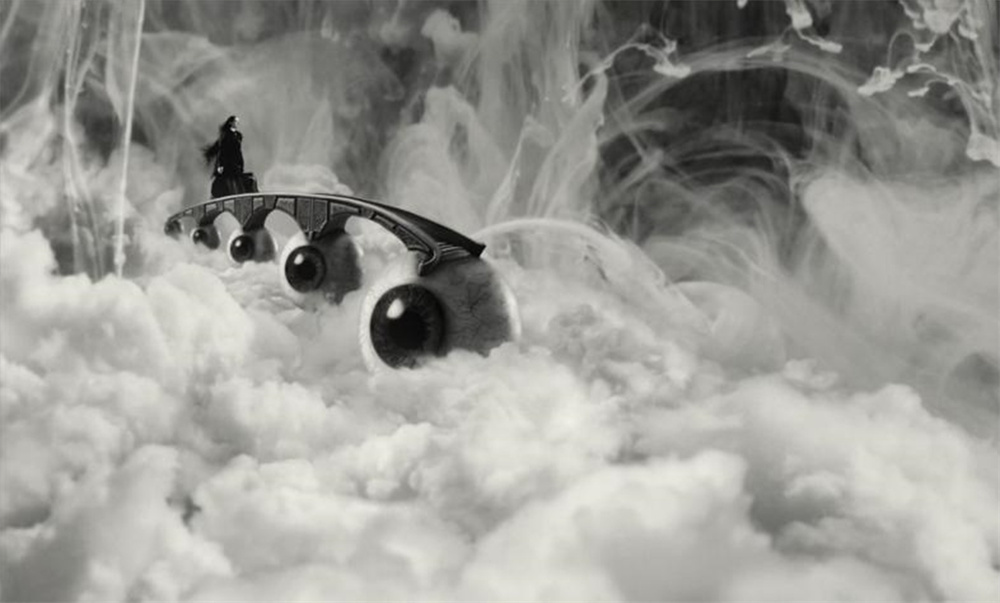
In the chapters of the film, paintings with a very surreal style will appear. For example, in the "London" part, the "Bridge of Destiny" suggests that the heroine committed suicide by jumping into a river in her previous life; and the base formed by the eyeballs is a metaphor for surgical transformation.
Compared with "Barbie", which suddenly imagined a world where women could rule society and establish a new order, "Poor Thing" seems to be saying that no matter how loud the slogans are, the realistic road to fighting for rights is not that easy. Not just women, just like the male doctor who created the heroine in the film, he is also a pitiful person. Because of his father's crazy pursuit of science and rationality, he turned him into a mutilated experimental subject. Although at the beginning of the film, the audience will feel like his assistant that this is an inhumane mad scientist, but after watching the film at the end, they may understand that his actions are also challenging social restrictions to some extent, but they are also trapped in the body. Not involuntarily.
What if the doctor does not transform a "new woman" but the protagonist of the film is a "new man"? While he may not end up in a brothel, the end result won't be any better than what happened to his father, the eccentric doctor.
Putting aside the gender differences between men and women, the film seems to imply that in the post-industrial society, it seems that everyone has the right to freely choose their life, but in the end they only have the freedom to be a prostitute. Just like today, the working people have their eyes open most of the time, and they only have the freedom to go out and work every day.
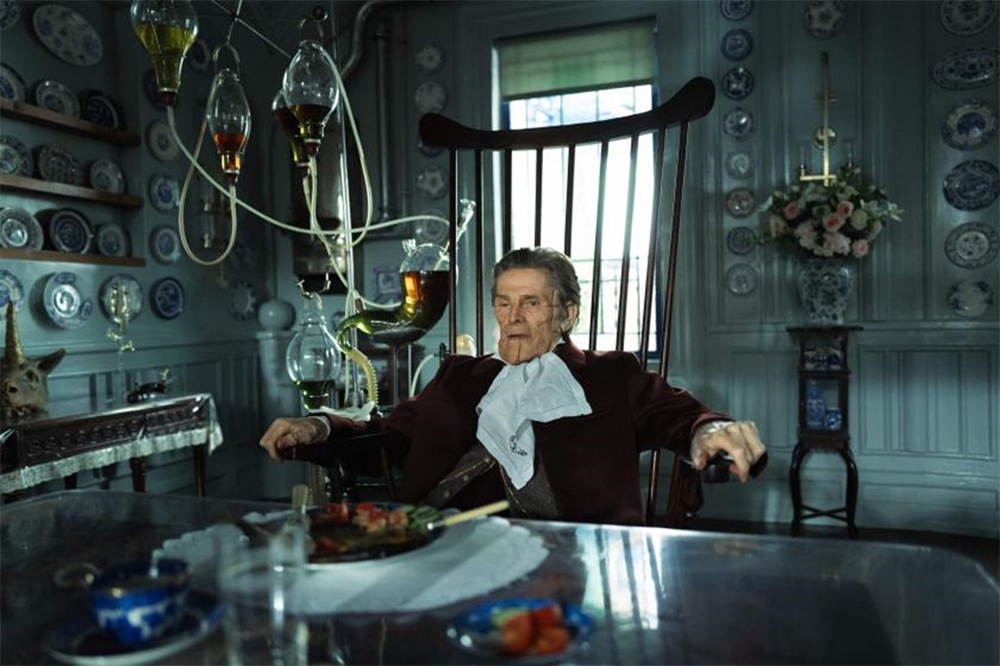
The disfigured doctor in the film is a somewhat terrifying and sympathetic character, inheriting all the characteristics of "Frankenstein" in Gothic novels.
"Poor Things" is a unique film that re-examines some of the demands and opinions of the feminist movement in recent years from a unique perspective. It uses shocking images to force every viewer to reflect on what is real. "free". The large number of "nudity" scenes deliberately appearing in the film can't help but remind people of the sex trade and organ sales that have been legalized in Argentina. Should there be limits to the freedom that people have, such as whether they can do whatever they want? What about dominating and selling your body?
If viewed solely from a feminist point of view, there are quite a few unpleasant aspects of the film, which seem to deliberately misinterpret the demands of feminism. But there may also be many misunderstandings. Domestically, young women are keen to demonstrate their rights and status, and attack men’s way of thinking, which is never equal, while young men mostly use “little fairies” to counter such attacks; what kind of reconciliation and exchanges can be achieved between the two genders? The barriers seem to be getting thicker and thicker, and the cultural contradictions are getting deeper and deeper.
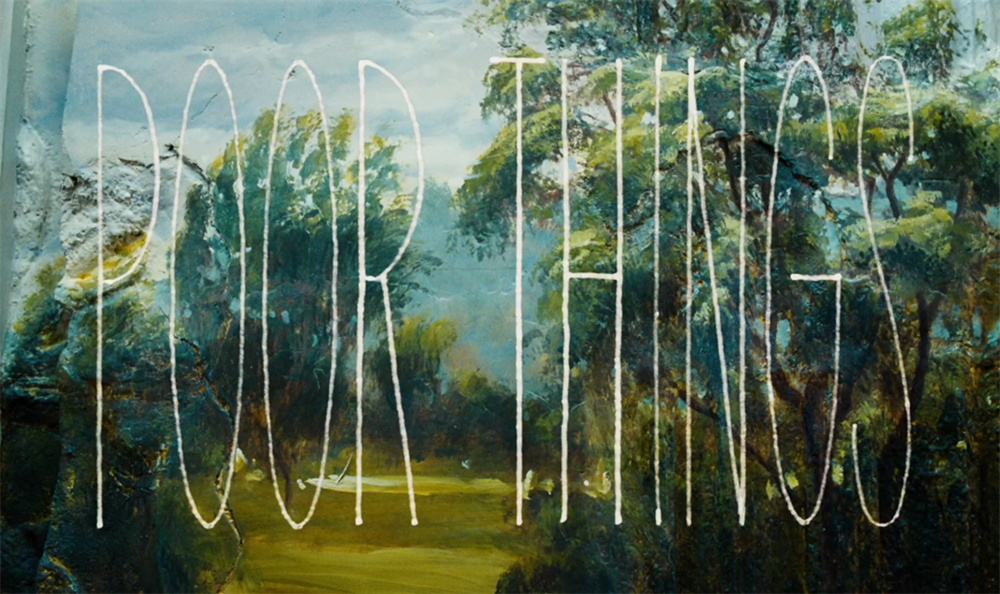
The large number of classical oil paintings and architectural close-ups that appear in the film are not only visually unique, but also quite classically beautiful.
In fact, both parties who dislike each other live a miserable life, because most ordinary people in society, whether men or women, have no freedom of choice and are eventually transformed into tools for creating value for capital. In a society without real freedom, being a prostitute is a last resort, and doing a job every day that you don't like is also a helpless reality.
"Poor Things" is somewhat of a fairy tale after all, and ultimately provides an ideal ending for all the characters. But the reality is that the pastoral paradise of freedom has always been elusive, and this is not just a problem for feminism.


